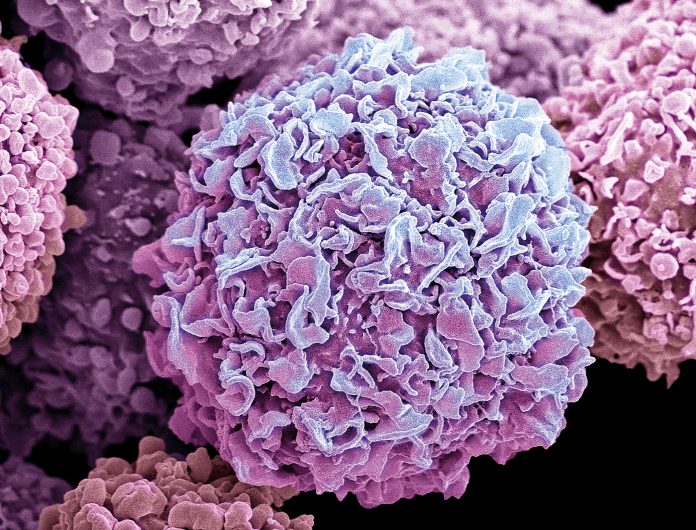
To better guide breast cancer treatment, a team from the Tangshan People’s Hospital and collaborators built an immune score (IS) based on immune checkpoint inhibitor-related mRNAs and lncRNAs that classifies patients into high and low groups and assesses their survival outcomes.The team reports that the IS score accurately predicts the prognosis of breast cancer patients.
They write, “This underscores the relevance of IS in guiding therapeutic decisions and tailoring patient management strategies in clinical settings.
The paper was published in BMC Women’s Health, and the first author is Haiping Zhang.
Immunotherapy is used in breast cancer, but with uneven results. The rate of response has been reported as low as 12%. Meanwhile, research on immune-related genes, particularly immune checkpoint inhibitors and long non-coding RNAs (lncRNAs), has expanded.
This team analyzed 23 datasets to identify 15 ICI-related mRNAs and five immune-related lncRNAs, creating a robust IS. This score was used to classify patients into high and low IS groups and assess their survival outcomes.
Patients with high IS showed significantly poorer overall survival (OS) and progression-free survival (PFS) compared to those with low IS. The team thus confirmed IS as an independent prognostic factor. Additionally, high IS was associated with higher mutation loads and neoantigen profiles, while low IS correlated with enhanced immune cell infiltration.
They write, “The central role of the immune system in cancer therapeutics is increasingly being recognized, and cancer immunotherapy, along with surgery, radiotherapy, chemotherapy, and targeted therapy, is becoming a powerful method for treating malignant tumors.”
Immune checkpoint inhibitors are one of the most promising types of immunotherapy and have achieved significant success in a variety of cancers. The world immune checkpoint inhibitor market is anticipated to reach over $154.25 billion by 2030. Given the uneven response rate, an effective means of evaluating patient prognosis is needed.
The composition of the tumor immune infiltrate, consisting of multiple immune cells, is an important determinant of tumor-immune interactions, the researchers note. In several cancer types, tumor mutational burden is a biomarker of ICI treatment efficacy, and neoantigens produced by somatic tumor mutations can be recognized by the host immune system and influence the immunotherapy response of patients.
Recent studies suggest lncRNAs (which are more than 200 nucleotides in length and do not encode proteins) play key roles in a wide range of biological and cellular functions and are important elements of the immune system that have attracted considerable attention in cancer immunity.
In this study, the Tangshan team identified 15 ICI-related mRNAs and five immune-related lncRNAs using bioinformatics analysis in multiple databases.They selected gene signatures to identify four immune cell populations: activated CD4 T cells, cytotoxic cells, activated CD8 T cells, and B cells.
Based on RNAs, an IS for breast cancer was developed and found to be associated with survival outcomes. Finally, they explored the connection between IS and immune-related features in TCGA.





